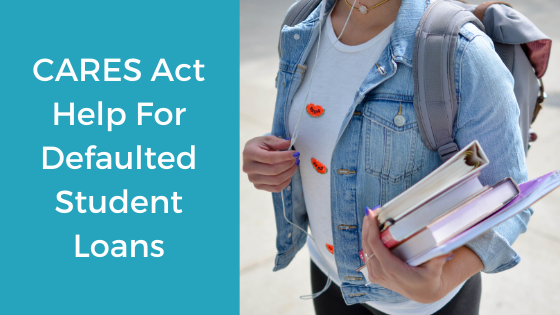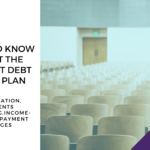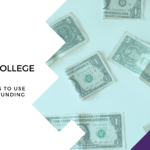Please note an executive order signed 08/08/2020 continues the student loan relief through 12/31/2020. This article has been updated to reflect the new expiration date of specific relief measures.
Before coronavirus, 1 in 10 federal student loan borrowers were in default. Paying student loans during cornavirus is harder than ever. Thankfully, the CARES Act has protections to prevent borrowers from becoming delinquent or entering default. The executive order signed August 8th extends administrative forbearance for all federal student loans through December 31st, 2020. That gives borrowers a nine month pause from monthly student loan payments. Check out our previous post Take Full Advantage of the CARES Act Student Loan Relief for more details.
Preventing default is great, but what about borrowers who were already behind on payments or in default on their student loans? This post highlights key CARES Act relief for borrowers with delinquent or defaulted student loans.
What happens if I’m Actively Rehabilitating my Federal Student Loan?
All monthly payments will be paused. All the paused payments will count as eligible payments toward the nine months of on time payment required to rehabilitate your loan. So let’s say you were rehabilitating your loan since February 2020 and your payments are due on the 15th of every month. March-September 2020 payments are paused but count toward the nine required payments.
*Note, if you made a payment after March 13th you can have that payment refunded by contacting your servicer.
What if I want to start rehabilitating my defaulted student loan?
Contact the Department of Education’s Default Resolution Group you can call them at 1-800-621-3115 (TTY for the deaf or hearing-impaired 1-877-825-9923) for assistance. You can also read more about rehabilitation in our post Coach Q&A: How to get your student loans out of default.
When you enter rehabilitation your first payment won’t be due until January 2021. You get credit for the months after the rehabilitation agreement was made through September 30th. If you entered a rehabilitation agreement May 5th with first payment typically due on the 15th but paused due to CARES, you would get credit for May-December 2020.
What happens to involuntary payments like wage garnishment?
The CARES Act plus the executive order paused involuntary payments through December 31st 2020. The Dept of Ed is notifying employers to stop wage garnishments for a student loan in default. The Dept of Ed will refund you for wages garnished after March 13th 2020 & tell your employer to stop garnishments.
If you had your tax refund or social security benefits withheld to repay defaulted student loans after March 13th, you will receive a refund. Unfortunately, funds withheld before March 13th will not get refunded.
Department-contracted private collection agencies will stop making collection calls and sending letters or billing statements.
If you have questions or concerns about your collections, or if you would like to continue making payments under a previous arrangement with the collections agency, email ED’s Default Resolution Group or call them at 1-800-621-3115 (TTY for the deaf or hearing-impaired 1-877-825-9923). The Default Resolution group can connect you to your private collection agency to continue your current payment arrangement.
Additional Resources:
Take Full Advantage of the CARES Act Student Loan Relief
Coach Q&A: Tax refund interception to pay defaulted loans
Department of Education Coronavirus and Forbearance Info for Students, Borrowers, and Parents
Coach Q&A: How to Rehabilitate or Consolidate Your Defaulted Student Loans
Coach Q&A: How to get your student loans out of default




